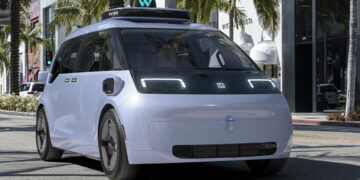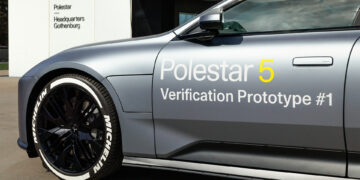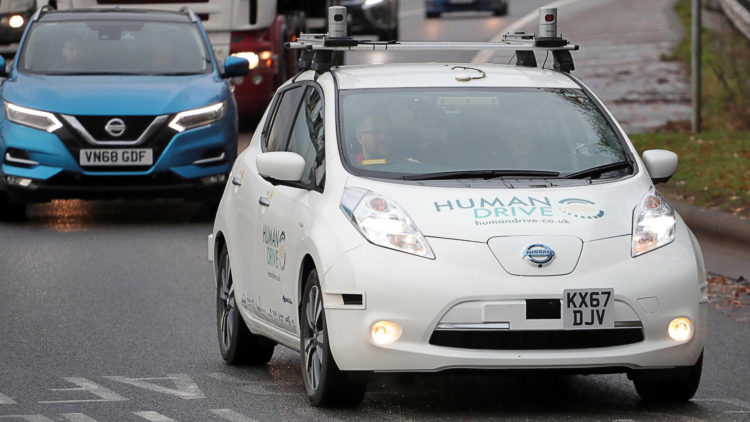There is every possibility that a child born today will never have to take a driving test. When I Robot was released in 2004, its self-driving Audi cars seem to be a complete flight of fantasy. Today, Nissan has announced the results of its £13m experiment in self-driving (HumanDrive) with a Nissan Leaf electric car – and the results are very encouraging. WhichEV checks through the project details to see who was involved.
Getting a car to drive itself around a simple/level track in perfect weather conditions (with no other cars in sight) is one thing. Getting from Bedfordshire to Sunderland during busy periods – while contending with thousands of tense humans in other cars – is a completely different kind of test.
Government backing helped a consortium of companies, working alongside experts from Leeds University and the Highways Agency, to end a 30-month project with a successful 230 mile autonomous journey – which has been termed ‘The Grand Drive'.
A combination of GPS, RADAR and LIDAR as well as advanced camera technologies were combined with Ai systems in order to build up a picture of the world around the vehicle. The system then had to make decisions about how to navigate roads and obstacles, in real time, in order to achieve its goal. You can download a simple infographic on the project from here.

“The HumanDrive project allowed us to develop an autonomous vehicle that can tackle challenges encountered on UK roads that are unique to this part of the world“, said Bob Bateman, Project Manager for Nissan Technical Centre, Europe. “That includes complex roundabouts and high-speed country lanes with no road markings, white lines or kerbs”.
It seems that the autonomous technology allowed the car to change lanes, merge and stop/ start when necessary. In human terms, there were plenty of opportunities for an accident. To reduce the risks, two experts were in the Nissan Leaf at all times – in case the car needed to be rescued from itself. It did not.
Nadhim Zahawi, Minister for Business, told reporters, “Safely completing the longest autonomous drive in Britain is an incredible achievement for Nissan and the HumanDrive consortium, and a huge step towards the rollout of driverless cars on UK streets. This project is a shining example of how the automotive industry, working with government, can drive forward technology to benefit people’s mobility – while helping to slash carbon emissions”.
Good news, given that the deadline for terminating the sale of fossil fuel cars has been brought forward to 2035.
David Moss, Senior Vice President for Research & Development in Europe, Nissan Europe, said: “Nissan’s Intelligent Mobility vision is to develop autonomous drive technologies for use in all of our cars in any area of the world. The door is now open to build on this successful UK research project, as we move towards a future which is more autonomous, more electric, and more connected”.
Although this particular combination of technologies and partners is unique to this project, the Nissan Juke, Leaf, Qashqai and X-Trail models are already available with ProPILOT, a Nissan Intelligent Mobility technology and enhances a driver’s control by assisting with steering, acceleration and braking. It works in a single lane on highways, and is optimised for low-speed congestion and high-speed cruising. Standard Leaf models can be leased by a business for less than £170 – but you will have to drive them yourself.
While there are certainly a lot more hurdles to jump before the roads are populated by self-driving vehicles, you can't help thinking that we're the last generation that will always have to ‘take the strain' when it comes to personal transport.


















Discussion about this post